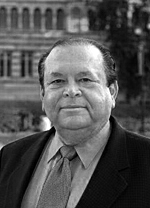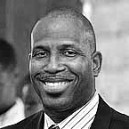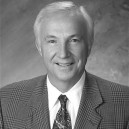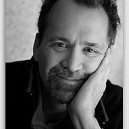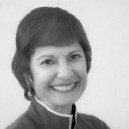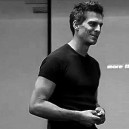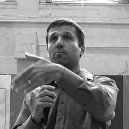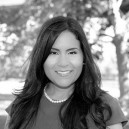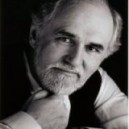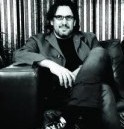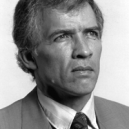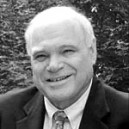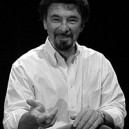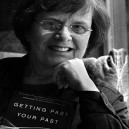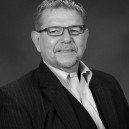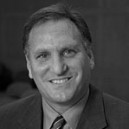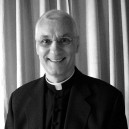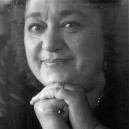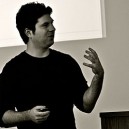Dr. Bernard Luskin
Media Psychologist
Perhaps a better bio would include what Dr. Bernard Luskin hasn't accomplished in his illustrious career in psychology, entertainment and business. Dr. Luskin is a licensed psychotherapist, with degrees in business and a UCLA doctorate in education, psychology and technology.
A former college and university president, Luskin is the founding chancellor of Jones International University and the founding CEO of Touro University Worldwide. He has taught at a number of universities in California, helped launch the first PhD program in media psychology, and worked as an executive at a number of very well-known media companies. He has authored best-selling books on economics, technology and education and produced award-winning television series and CDs.
He continues as Director of the W. K. Kellogg Foundation Community College Leadership Legacy Project, and is also the CEO of his own education and media solutions company, Luskin International. In 2011 he received a Lifetime Achievement Award for contributions to Media Psychology from the American Psychological Association and will serve as President of the "Society for Media Psychology and Technology," APA’s Media Psychology Division in 2014.
Was there a specific moment in your life that led you to become a psychologist?
I have always been interested in human behavior. I would say that I first wanted to start becoming a psychologist while I was in the Navy. I was in the Navy for two years after I got out of high school, from 1956-1958.
I started to do a lot of reading while I was on duty. Back then I was doing watch duty as the watch Librarian, so I would do a lot of reading, studying hypnosis and those sorts of things. So I really always wanted to do it. I had kind of a checkered life, it seemed to always move me out of psychology and then thrust me back in.
I was going into teaching initially, but then teaching turned out to be about learning and then learning was about behavior and behavior was of course psychology, so I became a learning psychologist. But I would say that for as long as I can remember, I wanted to be a psychologist.
How did you start on a path toward Media Psychology?
When I first started teaching I got lucky and I actually worked as a software engineer doing programming for a company. This helped me develop an early skill-set in technology that was crucial to my career. I then got a job teaching at a community college as one of the data-processing teachers; it was one of the first colleges to have a computer at that time. I began trying to involve computers in learning, which was something called "Computer Assistance Instruction". I stayed there through the 1960's, when I completed my doctorate at UCLA with a dissertation in "Computer Assistance Instruction" in 1970.
I was pretty much interested in applying the computer to the way people behaved, which was "media psychology", but at that time those words didn't even exist.
I really got most focused on it in the mid-1980's when I took a job with Philips Interactive Media. My job was to create some of the first interactive CDs such as the Sesame Street, Groiler's and Compton's Encyclopedia, and other children's games. My job was to oversee the direction of the technology, as far as why people behave the way that they do when using these forms of media.
Learn more about online media psychology degrees.
What kind of jobs did you have during your extensive career?
I went on to work in a lot of different businesses after that. I worked for educational facilities in computer assistance instructions, I worked for the cable companies, I worked for IBM, television cable networks, and I ran my own consulting company. And all of this time, throughout my career, I had in my mind thoughts like, ‘how are these things changing or effecting people’s behaviors?’ In the end, media psychology was just a very natural progression in my career.
Media was so powerful at that time and it helped capture mind share. I worked in product analysis; I worked in advertising; marketing; and audience analysis. I had easily over 1,000 projects during my career.
In 2002, I got to start the first Masters and PHD program in media psychology at Fielding Graduate University. We built that program up at Fielding, which really was one of the pioneering programs. And then, in 2008, I left and became the founding CEO of Touro University Worldwide. We launched a master’s degree in media and communications psychology and plan to launch a doctoral program next fall. In 2007. I also launched a masters degree program in media psychology and social change with UCLA Extension that was also a first of its kind.
Can you describe an average day of work for a media psychologist?
My work was very diverse as a media psychologist. I worked as a teacher, and an executive. I ran a cable company. I owned a consulting company that focused on media and behavior. I worked for the British Health Authority when they were trying to learn how to use media to increase public understanding of health issues. And I was able to work centrally within politics.
To some extent, I was an educator and to other extents I was an entrepreneur. As a faculty member I was teaching media psychology to students. But I also work in applied fields, mostly doing contract work. So people would call me and I would get hired for everything under the sun, including serving as an expert witness in various types of media related litigation.
I worked on diverse projects from being an expert witness in patent disputes, to handling media issues, to analyzing trailers or movies for film studios. Many of the serious directors are really psychologists and most people don't realize that. I’ve gotten a chance to spend time with a lot of directors, and some of the most successful directors are very interested in psychology and how the media they are creating applies to their audience.
If someone wanted to become a media psychologist, what is the optimal educational path?
One, you can function as a media psychologist, or you can learn to apply media psychology to the things you do. So you can study about psychology and apply it to behavior on the Internet or towards any media really, and you can do this by just taking some classes, working toward a degree in college, or even just using your natural instinctual intelligence. At this level, anyone can use media psychology.
If you want to function as a practicing media psychologist, or in other words, work as a media psychologist for money, you’re going to have to start by getting a graduate degree in some area of psychology. It can be a PHD, EdD or a PsyD, it doesn't matter. Every area of psychology applies to behavior, and every area of psychology education uses some sort of media. So studying any area of psychology will do.
From there you need to look for opportunity. It’s similar to someone that goes out and gets a degree in accounting. They go out and find a job, but it doesn't need to be as an accountant per se, it can be in almost all aspects of businesses and walks of life. The same can be said for media psychology. It is part of a broader education generally, and can be applied to so many things.
You can use it to work at a film studio, you can use it in web development, and you can use it anything related to communications or technology. Communication works hand in hand with technology and media, so it can be used in politics, marketing, advertising, public policy, and business. There are just all sorts of career applications. The newest area that I am working on is marriage and family issues. I am working in the American Association of Marriage and Family Therapy to encourage local practitioners, i.e., clinicians to also work on major public understanding issues like obesity, cholesterol, cancer, bullying and the like on a national and international scale, using media to influence behavior in a positive way
What are some of your favorite things about working as a Media Psychologist?
It’s very challenging in the sense of understanding why people behave the way we do. Right now we know more about how people behave then we have known throughout all of history. It is extremely fascinating to learn something every day, and to be a part of the evolution of media.
Could you give us some specific instances in the film industry that you have seen Media Psychology used?
Of course, one thing that comes to mind immediately is James Cameron's Avatar. One of the things that made Avatar effective and different from the others was that when they made the movie they used electronic movement devices that helped to simulate real human movement. What they figured out was that they would take the features of the avatars and make them perfect. So they improved on the human figures and the actor’s features.
So the objective was to take the avatar and make them 110 percent of humans so that people would identify more with the movie and the avatar's characters because of those perfected human features. Cameron calls the difference between how people look now and moving them to the 110 percent perfected version the “Uncanny Valley". And that was all a part of the movie’s success, and that is all media psychology. James Cameron gets it, he's amazing and he utilizes media psychology extremely well to increase his movie’s success with his audience’s behavior.
Another movie was "The Incredible Hulk". When Lou Ferrigno did the Hulk on TV, he was an incredible success, people loved him, and he was an icon. When the other Hulk was made years later, he was a poorly done animated character with very non-human characteristics. It was a huge flop, and the reason is because they failed to cross "The Uncanny Valley" with his character. People weren't drawn to his human traits.
We just saw the Hulk yet again in the Avengers, in this movie they at least didn't lose the character completely like the last Hulk movie, but they still weren't able to cross "The Uncanny Valley" with his character. A lot of people try to cross “The Uncanny Valley” instinctively with characters; often times falling short, however, with proper use of media psychology a movie like that can be greatly helped with the right psychological direction.
What was one of your favorite cases that inspired you during your career?
When I worked for the British Health Authority, they wanted to use media to change behavior and to improve health. So we worked on increasing public understanding of diabetes and cholesterol using media. There was a direct connection to the increase in people’s understanding of their health during our campaign. It definitely worked, and it was one of the cases that I most enjoyed working on because it directly helped people.
What are some difficulties or hardships that a student should expect in this career field?
When someone hires you to do something, the jobs will be in education, marketing, advertising and publishing, and technology companies.
Specific jobs in terms of employing someone as a media psychologist are just coming into their own. It’s a relatively new field. In teaching, there are always positions, so that is positive. It’s always going to be an advantage finding a job because after all, you are a doctor when you’re finished, and also an expert in human behavior. But it is part of a greater skill, so I think it’s important to have a separate skill that you bring along with it so that you are a bit more specialized, so that your media psychology degree amplifies your other job credentials.
Also, it's very important when you function professionally to produce results. This will help you to build your name by word of mouth. Your reputation is everything as a professional. People seek out professionals by results-driven track records. So it will be very important to prove yourself and your abilities in the work force.
Do you have any gems of wisdom that you can impart for students that will be pursuing a career in the field of Media Psychology?
Studying psychology is a lifelong pursuit. It’s more of a process than a result, and the more you think, the more you learn. You learn psychology one theory at a time and then combine them. I think that media psychology is fundamental to 21st century literacy.
It’s a subject area that people should be aware of regardless of what they do. I think it’s a growing field, with increasing potential as there is increasing knowledge of this skill-set. Media psychology is at the forefront of new fields of psychology that will become very popular and prominent in the given future.
For more information about what exactly a media psychologist does and how to become one, please feel free to visit our Media Psychology careers page in the careers section of our website.







